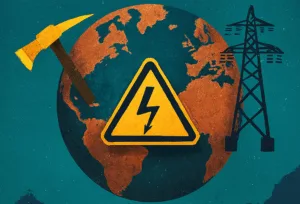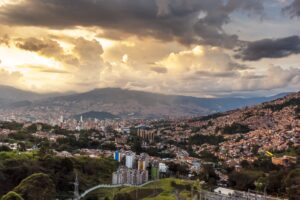Abraham Maslow was an American humanist psychologist who developed a theory about human motivation. He explained it through a hierarchical framework, known today as Maslow’s Pyramid, which ranks needs from the most basic (at the base) to the highest, or most aspirational.
At the first level are the basic needs essential for human survival—such as hydration, food, and air. As these needs are met, people ascend to higher levels, eventually reaching the fifth level: self-actualization.
While I don’t intend to delve deeply into this theory, I start with this brief explanation to offer a reflection I’ve been considering for weeks: the difference in concerns between those of us in developing countries and those in developed nations—and how we should be approaching them.
As Yuval Noah Harari states in the introduction to his book 21 Lessons for the 21st Century, thinking about the global picture is a rare luxury. Harari gives the example of a mother in Mumbai who, rather than worrying about climate change, is trying to figure out how to feed her children.
That’s not the reality for someone like Greta Thunberg, who was born in Sweden—a Nordic country of just over 10 million people and one of the richest in the world, with an enviable quality of life. Greta likely isn’t concerned about her next meal, having a roof over her head, or other basic needs.
Yet in Colombia, we often compare ourselves to countries like Sweden, even though our reality is vastly different: we have nearly five times its population, and about twice the poverty rate—with around 40% of Colombians living in poverty. That’s why the current inequality and inequity of the energy transition is so frustrating.
This asymmetry in quality of life and socioeconomic development between Nordic/developed countries and Colombia must be taken into account before adopting their energy and climate policies. Those nations have already met their basic needs and have, in large part, solved energy poverty.
While we agree that the current energy system is unsustainable, what countries like Colombia must pursue is a strategy that begins from the base of the pyramid—a just transition guided by the principle that “no one is left behind,” and rooted in planning, data analysis, and good governance.
Decision-makers must understand their role and responsibility to citizens. In energy matters, they need to carefully consider what the transition means for their own country and what role it plays within the global system, always prioritizing local needs.
Wealthier countries can—and should—support ambitious climate policies in developing economies. But that support must complement public policies that prioritize economic development and poverty reduction. And we must not forget energy poverty, especially in a country like ours that still hasn’t fully completed the transition from firewood to modern energy sources.
Carolina Rojas Gómez
Student, Executive Master of Management in Energy
BI Norwegian Business School


